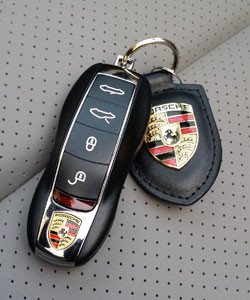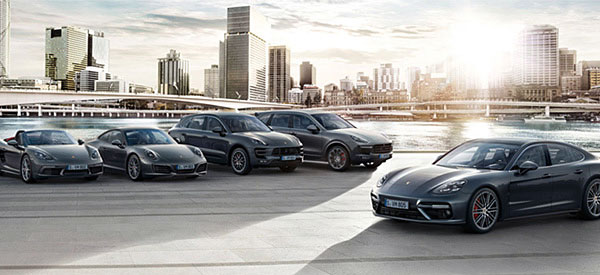Like most, we follow news on our favourite brands. We’re particularly interested in news on a favourite brand that is, or has been, a client. So a recent press release from Porsche Cars North America (PCNA)[1], the US subsidiary of Stuttgart-based Dr. Ing. h.c. F. Porsche AG (Porsche AG), on their new Porsche Passport program caught my eye. Actually, it was the term ‘Porsche as a Service’, used by a journalist covering the release, that really got my attention[2].
In summary, Porsche Passport is a monthly subscription service that targets Millennials and anyone else anxious to participate in the Sharing Economy. For USD 2,000 or USD 3,000, you can use any current Porsche model, short of the high-end model variants and current super car, for a month. The lower price is for the lower half of the model range, the higher is for the upper half. Prices cover almost everything including insurance—basically leaving only fuel and windshield washer (though the latter can be surprisingly expensive[3]). You can even switch models daily.
Is this a great idea for the consumer?
 $2,000 is roughly 25% to 75% more than leasing a Porsche with a low-down-payment lease—which doesn’t include insurance and means a multi-year commitment to one model (it’s a stretch to call this a hardship, but for the purpose of analysis, let’s go with it).
$2,000 is roughly 25% to 75% more than leasing a Porsche with a low-down-payment lease—which doesn’t include insurance and means a multi-year commitment to one model (it’s a stretch to call this a hardship, but for the purpose of analysis, let’s go with it).
Passport is not, however, a cheap way to drive a fleet of Porsches. The ‘background and credit check’ required will mean that only those who can truly afford to buy or lease a Porsche will qualify. The current POTUS may not make the rigorous approval hurdle, though I’m pretty sure he’s not a Porsche person.
So Passport works for the consumer if they are willing to switch up models on a regular basis. The service makes that as easy as it can be, but it’s still a personal scheduling challenge.
But wait—there’s a target group-brand position mismatch here. Porsche indicates they are after the Millennial/Sharing Economy market with Passport. Based on career stage alone, Millennials are far less likely to be able to afford a Porsche (hence Passport) than the traditional target group. And they are much less likely to buy into Porsche’s view of driving as a primordial, visceral and interactive experience. They’re waiting for automated driving, if only to improve their sex lives[4].
Will Passport work for Porsche?
Given the above, it’s hard to see how this will play out as a success that rolls out across North America. I can imagine how Porsche Passport came about:
- Porsche intends to take the e-sports car crown from new-school Tesla. This could be an early step in that direction.
- Porsche loves to outdo stable mate Audi, both on and off the track, and Passport sure plays sexier than Audi On Demand, currently testing in San Francisco, CA.
- PCNA’s partner in this, Clutch Technologies, is a new Atlanta-based auto subscription specialist and they’re doing most of the work. Clutch’ business likely started at the low-priced end of the market. To get Porsche, their first major auto brand partner, they would have pitched excellent cost and terms.
- Passport starts as a test restricted to the Atlanta market. It’s easy to cancel, if necessary, when your partner is doing most of the work.
Porsche Passport appears to be an on-going trial program wrapped up like a subscription service that will likely disappear quietly after results roll in. Admittedly, I said the same more than once about the person mentioned above (the one likely to have difficulty with Passport’s background and credit check), but how many times can a guy be wrong?
- PCNA’s official press release: “Porsche Launches New Sports Car and SUV Subscription Program“, October 10, 2017.
- Bob Evans, “Porsche Drives Cloud Philosophy Into Consumer Marketing With Porsche-As-A-Service“, forbes.com, November 6, 2017.
- See one of our favourite print ads from then-US-market-AOR Goodby Silverstein & Partners here.
- David Booth, “Motor Mouth: Making whoopee in cars never goes out of fashion“, driving.ca, September 1. 2017.





